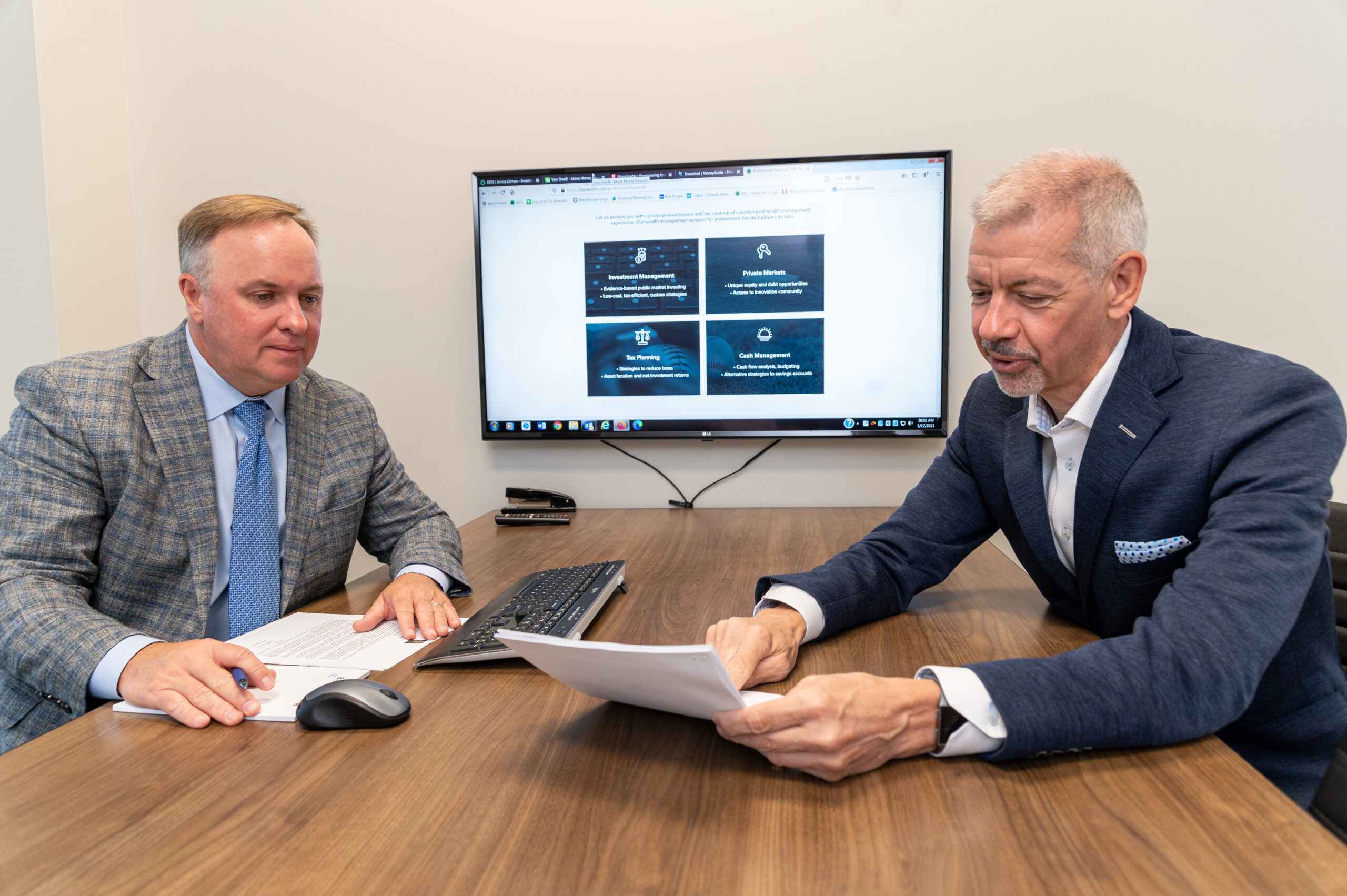Authors: Charles Crowley, CFP® AIF® and Eric Cramer, CFP®, CFA®
The number of decisions a business owner must make year to year can be daunting. From finalizing budgets and strategic hiring to expanding operational capacity, it can be tough to prioritize all that has to be done. Evaluating the advantages of a 401(k) retirement savings plan is, unfortunately, one of the most impactful decisions often put on the back burner. If you are due to give your company’s type of 401(k) plan a closer look, there are five key aspects of 401(k) benchmarking to focus on to ensure it is set up effectively and efficiently.
1. Growth, trends, and demographics
In business, things will inevitably change—potentially at a fast pace. This is also true when comparing and benchmarking 401(k) plans. Companies grow, markets evolve, demographics shift, and needs ultimately expand. An important consideration is ensuring the business has not outgrown its type of 401(k) retirement plan offering. Perhaps your employee base doubled, and your current plan structure does not match that growth. There may also be a need to focus on benefits and enticements to attract/retain extraordinary talent for key positions. Maybe there was an increased turnover across your industry, and you want to ensure your retirement plan is set up to account for such trends. You may even find that the average fees for your 401(k) administration plan are no longer sustainable. Whatever your circumstances, the company retirement plan should be evaluated every 2-3 years to ensure the offering still fits the needs of your business and employees.

2. Evaluation of costs for services
Arguably, the easiest facet of the 401(k) benchmarking phase is to evaluate the average fees for your 401(k) administration services and plan for the most cost-efficient type of 401(k) plan. Evaluating what best fits your needs can be overwhelming on your own. The sheer number of options, platforms, and features is vast, so it is important to seek assistance from an objective expert to help navigate it all. At BIP Wealth, we encourage business owners to focus on three things when comparing 401(k) plans:
- What do my employees need and expect from their type of 401(k) plan?
- Is my plan set up to maximize the benefits provided to owners and key leaders in the business?
- Where do the (fiduciary) responsibilities fall for the operation of the retirement plan?
Having excellent solutions to address these three questions when 401(k) benchmarking can reduce much of the operational headaches and time spent fixing issues down the road.
3. Encouraging action
When we sit down with a business owner or leadership committee to discuss the company’s type of 401(k) retirement plan, one of the typical concerns shared is lack of participation. Far too often, employees are not making full use of the advantages of their 401(k) retirement plan and it is either because they do not understand the features of the plan or do not realize how participation benefits their future. Ensuring employees understand these aspects and are aware of the resources available to them when questions arise is a key responsibility of our team as a fiduciary to a 401(k) plan.

4. Investment line-up
The most common feature of a 401(k) plan is, you guessed it, the investments. After all, the primary purpose of any type of 401(k) retirement plan is saving for retirement. However, this is a challenging piece of the 401(k) benchmarking puzzle. Consider this: what investment options are available within your current type of 401(k) plan? Do you feel they are diversified and sufficiently cover the differing risk tolerances, backgrounds, and needs of your employee base? It can be a tough question to answer and is also one of the largest risks for a plan sponsor – the fiduciary responsibility.
When 401(k) benchmarking, deciding how well your plan fits the needs of the participants is highly scrutinized in today’s regulatory world. This responsibility for most companies is often more appropriately managed by partnering with financial advisors, plan administrators, or industry experts. Doing so helps ensure the participants’ best interests are kept in mind while reducing costs and compliance risks for the sponsoring company.
5. Deadlines
Finally, and possibly the most important aspect to keep in mind when 401(k) benchmarking, is timing. There are key deadlines to consider whether you are altering your current type of 401(k) plan. Some deadlines are platform specific while others are mandated by the government. Nevertheless, it is critical to be proactive when enacting changes. This is especially important if you make changes requiring an adjustment to your plan documents. Give yourself and your team the needed time for appropriate due diligence when consulting with an expert who can guide you through these important decisions. This will help ensure you are not minimizing your options, forgoing benefits, paying higher than average fees for 401(k) administration, or simply locking your business into the status quo for another year. Each of these can have a monetary consequence in tow!

In conclusion, the insights above provide you with a few things to consider as you take a more detailed “look under the hood” when benchmarking your company’s 401(k) plan. If you are a business owner and would like to partner with experienced retirement experts on the evaluation of your plan, consider choosing BIP Wealth.
Click here to schedule a complimentary initial consultation with our team.
FAQs
What is benchmarking a 401(k) plan?
401(k) benchmarking refers to the process of evaluating and comparing the performance, fees, and features of an employer-sponsored 401(k) retirement plan against industry standards and peer group data.
How do you evaluate a 401(k) plan?
To evaluate your company’s 401(k) plan, consider factors such as employee demographics, needs, and retirement goals. You will also want to compare 401(k) plans based on fees and overall cost.
Why should I benchmark my 401(k) plan?
401(k) benchmarking could help your business find areas to improve your existing 401(k) plan. This could save you time and money in the long term.
How do I choose a 401(k) service provider?
To start, assess the needs of your company and employees. Then, compare the costs of the 401(k) offerings available to make an informed, cost-effective decision.
This communication contains general investing information that is not suitable for everyone and is subject to change without notice. Past performance is no guarantee of future results and there is no guarantee that any views and opinions expressed will come to pass. The information contained herein should not be construed as personalized investment advice, tax advice, or financial planning advice, and should not be considered a solicitation to buy or sell any security. Investing in the stock market and the bond market involves gains and losses and may not be suitable for all investors. Indices are not available for direct investment.

